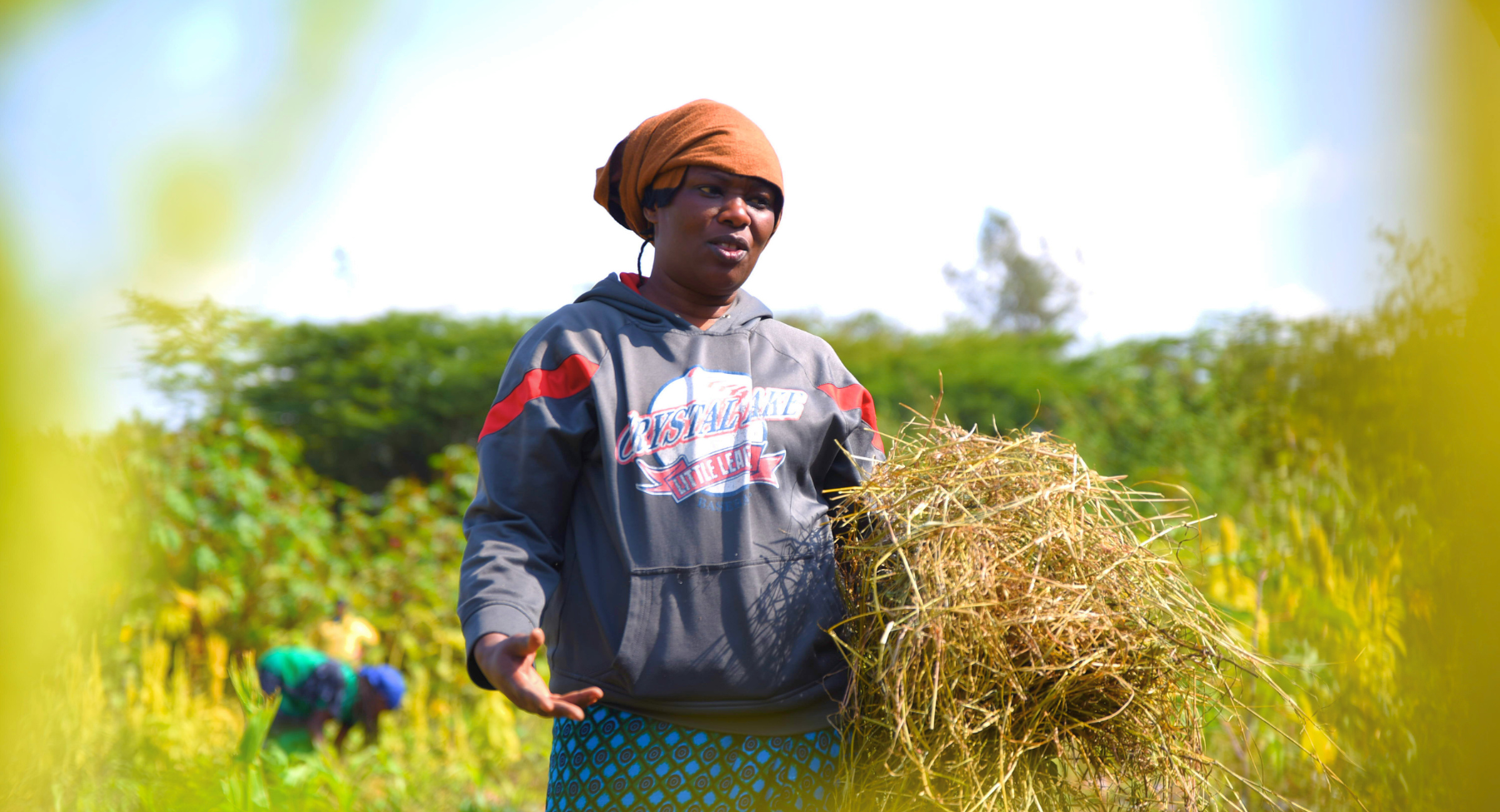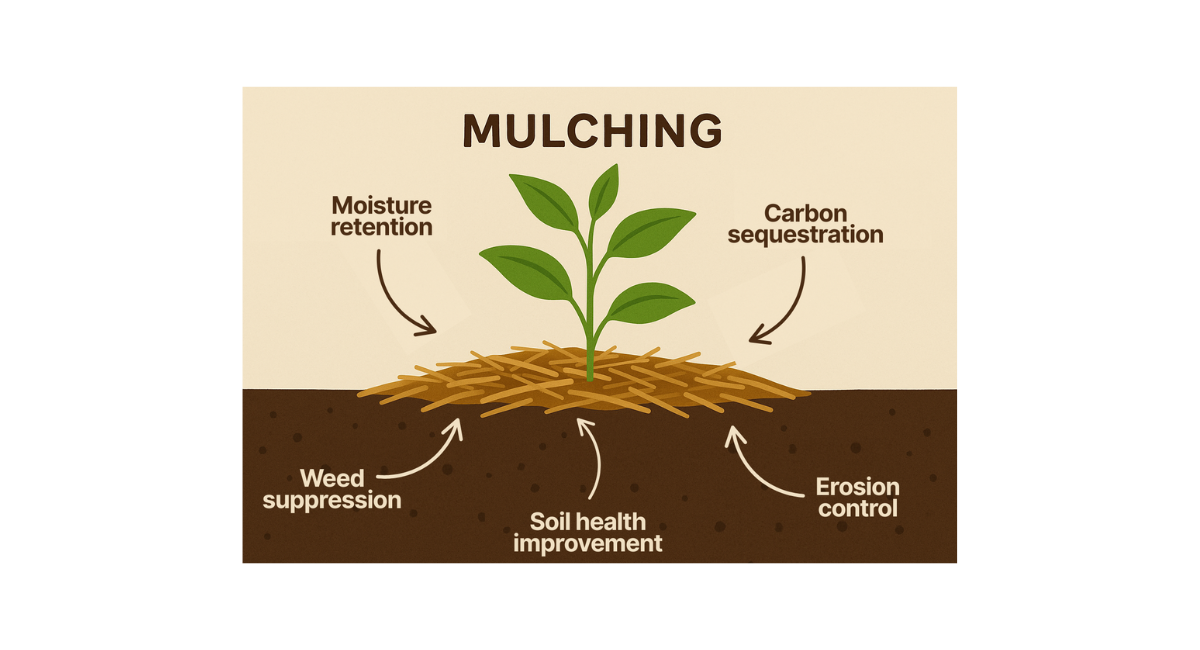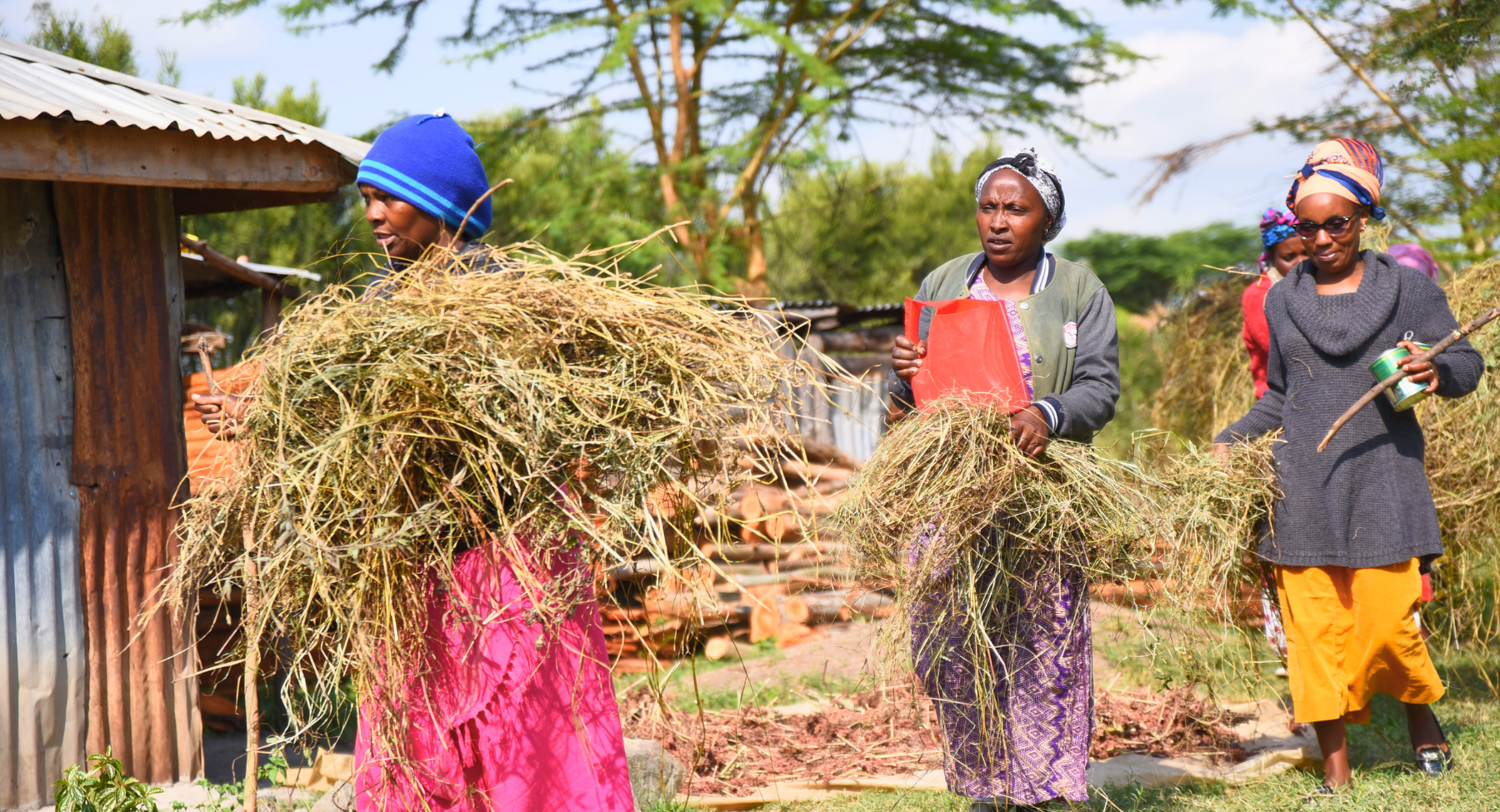“Today we are mulching the soil, removing weeds, and planting new seedlings. Then, we'll harvest the produce that is ready to be sold.”
It’s a rhythm Jane from Kenya knows well. The rustle of dried grass in her hands. The warm soil beneath her feet. The shared laughter of women working together under the blazing sun. For Jane, these are acts of care for the earth, resilience in the face of climate change, and of love for her community.
Mulching might sound like a small step in the farming process, but to Jane and the Digital Women’s Group, it’s nothing short of transformative. As she gently spreads the dry grasses across the soil, she explains, “What we are currently doing with mulching helps prevent water loss. The plants get to retain water. The way we are spreading the dried grass over the soil also prevents soil erosion.”
In a climate where every drop of water matters, mulching becomes a simple yet powerful shield to keep the soil moist, cool, and alive. It prevents weeds from stealing precious resources. It feeds the earth as the grasses break down, enriching the soil with organic matter. And finally, it welcomes the hidden heroes beneath the surface - the microbes and worms - all fueling life at the roots.
For Jane, the results are tangible. "I am very happy because the work we do ensures that we don’t lack food,” she says with a smile. "We take good care of ourselves and the land. With these crops, we harvest and sell them at the market. The money we make is saved in our joint bank for the future. This brings us a lot of joy.”
From mulch to market, their crops are not only nourishing their families, but fueling the local economy. And as their soil strengthens, so does their community.
Regenerative farming starts with something as humble as a handful of dry grass. But as Jane’s story shows, it grows into so much more - nourishment, income, climate resilience, and community transformation. And most importantly, it grows hope. Thank you for helping Jane transform her community and the land they live on.








